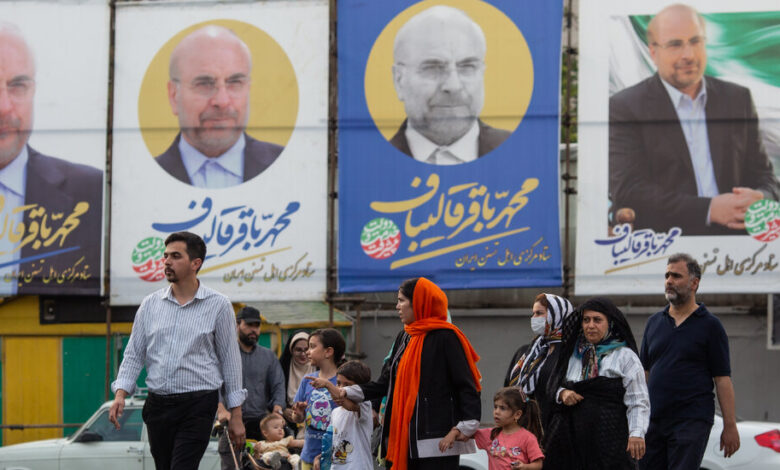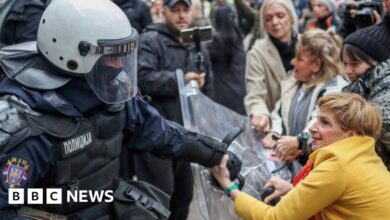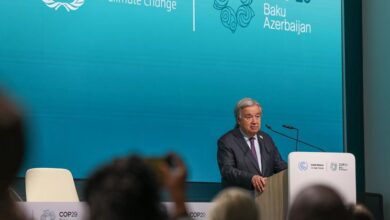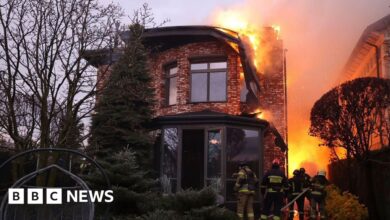Iran’s Presidential Candidates: Who Are They?

A heart surgeon, a former Tehran mayor and a cleric linked to the execution of political prisoners are among six candidates approved by Iranian officials to run in Friday’s election to replace the president who died in a helicopter crash last month.
The candidates have abandoned Iran Hijab enforcement. They have addressed US sanctions as contributing to the country’s faltering economy, and publicly. criticize the government in a series of debates, an unusual move in Iranian politics. But domestic voter apathy remains high and divisions among conservative leaders make predicting the outcome difficult.
Although Iran’s supreme leader, Ali Khamenei, has ultimate authority over important state matters, the president still sets domestic policy and can influence foreign policy .
Iran’s Guardian Council, a committee of 12 jurists and clerics, has reduced its original list of 80 presidential candidates to six, eliminating seven women, a former president and several other government officials. Four candidates remain in the race.
Two candidates — Amirhossein Ghazizadeh Hashemi and Alireza Zakani — withdrew from the race to consolidate the conservative vote. If no candidate wins a majority on Friday, a runoff election will be held on July 5 between the top two winners.
Polling from Iranian state television before the election showed reformist candidate Dr. Masoud Pezeshkian leading with about 23% of the vote. The conservative vote is split between Mohammad Baqer Ghalibaf and Saeed Jalili, each at around 16%. All fell short of the 50% majority needed to stop the flow.
Here’s what to know about the four presidential candidates still in the race.
Mohammad Baqer Ghalibaf
Mohammad Baqer Ghalibaf is the current speaker of the Iranian parliament and former mayor of the capital Tehran. The retired pilot and commander of the Islamic Revolutionary Guard Corps has run unsuccessfully for president several times.
He is also famous for his role in the government’s violent repression of students, first in 1999 and then in 2003, when he served as the country’s police chief and was said to have directed authorities fired live bullets at students.
Mr. Ghalibaf has faced accusations of financial corruption during his tenure as mayor of Tehran and hypocrisy over his family’s lavish spending abroad. He has denied the allegations.
Considered close to Khamenei, the conservative politician campaigned on a promise to reduce government inefficiency and criticized the government for losing money due to its failure to effectively apply sanctions. oil fines.
Mehrzad Boroujerdi, an Iran expert and dean of the College of Arts, Sciences and Education at the Missouri University of Science and Technology, said Mr. Ghalibaf has tried to position himself as “the candidate of the elite.” in debates by positioning yourself as the only person with the experience and capacity to lead.
Masoud Pezeshkian
The only reformist candidate on the ballot, Dr. Masoud Pezeshkian, is a heart surgeon and veteran of the Iran-Iraq war who served in parliament and as Iran’s health minister. After his wife and child died in a car accident, he raised his other children alone and never remarried. This, along with his identity as an Azeri, one of Iran’s ethnic minorities, endeared him to many voters.
Reformist candidates have been largely excluded from the 2021 presidential election and parliamentary elections in March. Experts say Dr. Pezeshkian was likely brought in to boost turnout among reformist voters and Iranians who boycotted parliamentary elections in March. The government views high turnout as crucial to the perceived legitimacy of the election.
Dr Pezeshkian was endorsed by former President Mohammad Khatami and he expressed openness to nuclear talks with the West, framing the debate as an economic issue.
Saeed Jalili
Saeed Jalili is an ultra-conservative former nuclear negotiator nicknamed the “living martyr” after losing a leg in the Iran-Iraq war. He leads the far-right Paydari party and represents the country’s most hardline ideological views when it comes to domestic and foreign policy.
Mr. Jalili said he believed that Iran did not need to negotiate with the United States to achieve economic success. Although he may be the candidate closest to Mr. Khamenei, he has given a “completely unrealistic” assessment of Iran’s economic capabilities to the public, Mr. Boroujerdi said.
“He is strongly opposed not only to any nuclear deal but to any kind of opening up in the West,” Mr Boroujerdi said.
Mostafa Pourmohammadi
Mostafa Pourmohammadi is the only cleric running in this election. As a former director of counterintelligence, he was a member of the committee that oversaw the execution of thousands of political prisoners in Evin Prison in 1988. He downplayed his role in the executions.
He spoke frankly and clearly in a debate that Iran’s biggest problem is that the government has lost the support of its people and cannot mobilize participation in elections.
Mr Pourmohammadi has criticised Iran’s support for Russia in its ongoing invasion of Ukraine, saying his country does not gain enough from supplying weapons to the Kremlin.
He also called for former President Donald J. Trump during his election campaign. “Wait and you’ll see what happens when Trump comes,” he said in a recent televised debate. “We have to be ready for negotiations.”
In one of Mr. Pourmohammadi’s campaign posters, he and Mr. Trump look straight into each other’s eyes, staring at each other. “The one who can stand before Trump is me,” the poster said.




